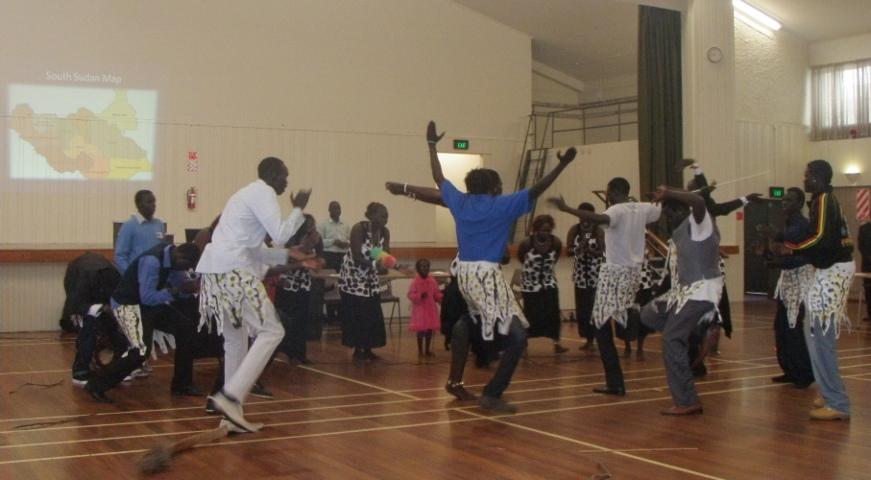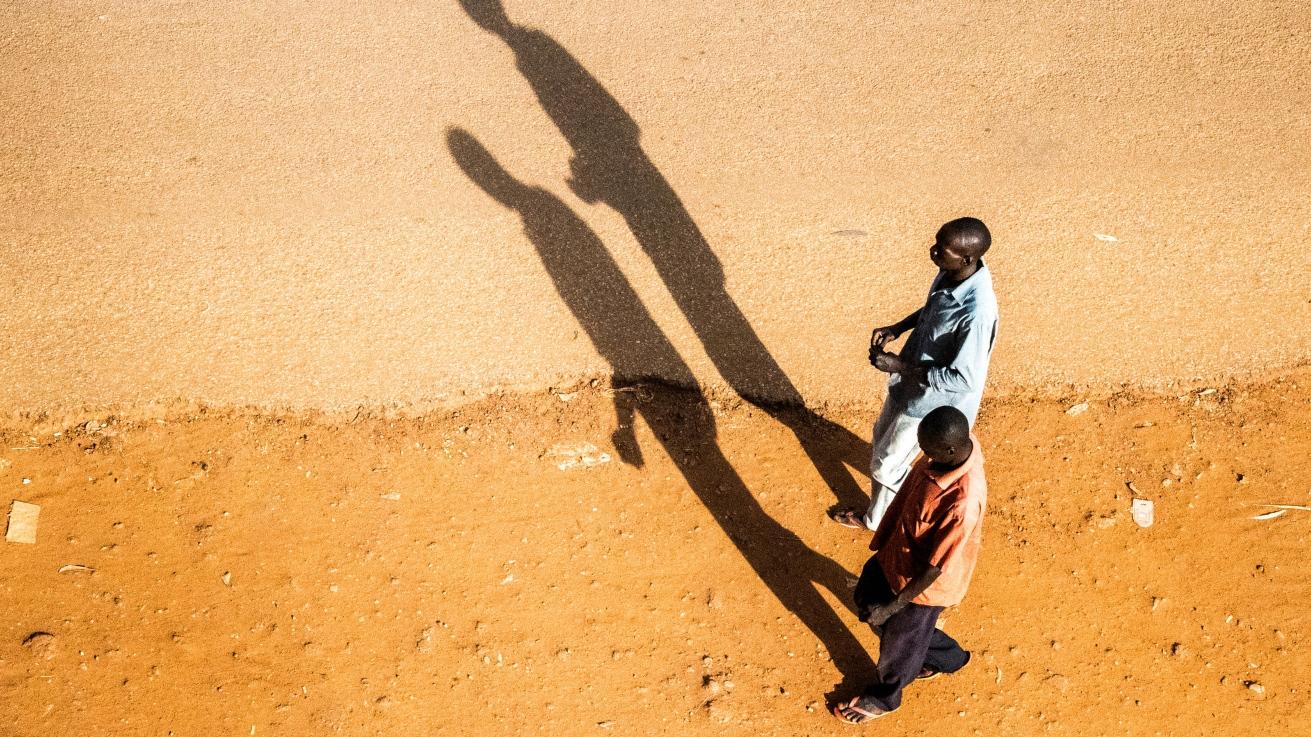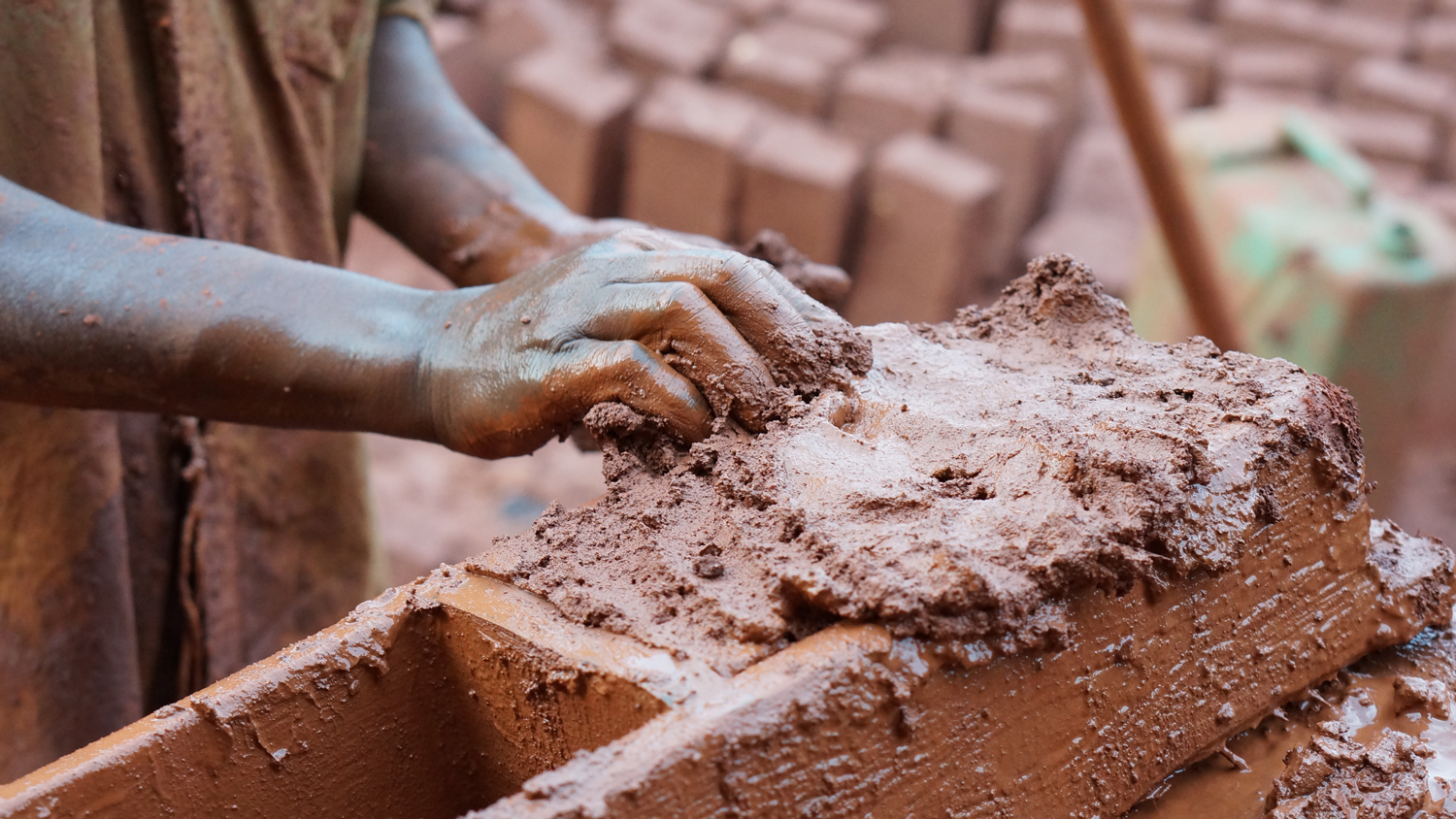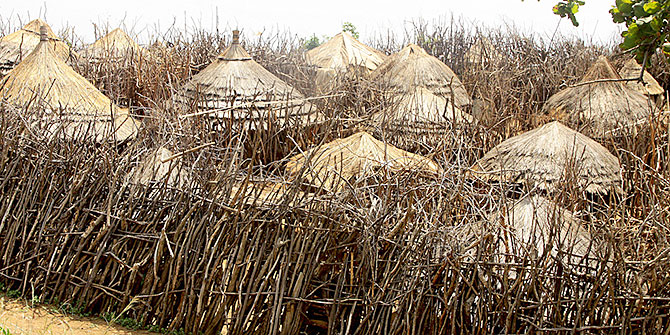Research focussed on a refugee community of Acholi South Sudanese in New Zealand shows the importance of maintaining cultural practices to sustain social networks and keep families connected to their histories and culture. LSE’s Dr Ryan O’Byrne describes the findings, which reveals how the community negotiates between a sense of belonging to the host country and to their country of origin, understood as a defining feature of the early resettlement period.
Many Acholi South Sudanese had been made refugees during the Second Sudanese Civil War (1985-2003), and then resettled in New Zealand between 2003-6. My new paper in the Journal of Immigrant and Refugee Studies discusses how this recently arrived refugee-background community living in the Wellington region of New Zealand during 2011 attempted to adapt and reproduce their customary marriage practices in resettlement. My research demonstrates how these attempts connected with the efforts that different individuals and households made at developing a sense of belonging in their new country. By using community members’ own ideas about how important their traditional marriage customs were, I looked at the ways individuals negotiated their understanding of belonging alongside larger, communal ideas over group membership and identity.
Community members’ experiences of resettlement were shown to directly affect their senses of belonging in and towards New Zealand. In my paper I therefore show how contests over cultural change highlight two connected issues: the problems some refugee individuals can have in resettlement, and the internal tensions inherent within any community – refugee or otherwise. My article argues that members of the South Sudanese Acholi community in New Zealand found themselves caught between two difficult positions: maintaining a distinctively ‘Acholi’ identity for themselves and their children, and developing a sense of belonging to a society in which they often felt like outsiders.
The importance of maintaining customary marriage transactions
Most of the South Sudanese I spoke with considered their marriage customs as among the most important of all ‘traditional’ Acholi cultural practices, customs which they said were extremely important for their cultural survival. Of all their traditions, they told me that it was the customary exchange of goods and money associated with marriage that were particularly valued. Several reasons were given: firstly, these exchanges helped build and sustain kinship and social networks. They simultaneously helped keep individuals and families connected to the history, culture and people of their place of origin. In other words, they helped community members maintain links with their former lives and the people and places they had left behind.
Most community members generally viewed the customary exchanges that take place around marriage as very distinctively Acholi, as something unique to their background and history and as parts of their culture that marked it as distinctive and special. Likewise, they generally spoke about how important it was that their customary marriage transactions continued in New Zealand, as they felt that these exchanges were a fundamental part of their culture and identity. They therefore told me that they felt that continuing to engage in these exchanges was necessary if they wanted to maintain a sense of who they ‘really’ were and where they ‘really’ came from. This was an important concern, as most adults openly voiced their anxiety that the community’s children would become ‘Westernised’ and lose connection to their African backgrounds and traditions. Instances of people who had not engaged in similar cultural practices were used as proof that some community members had already ‘lost their culture’.

A diversity of attitudes towards Acholi cultural practices
Nonetheless, differences of opinion over what to do about maintaining customs and traditions in resettlement did still exist within the community. Internal variations seemed to reflect individual experiences of resettlement, and particularly difficulties integrating into New Zealand society. In this way, contests within the South Sudanese Acholi community over issues like the practice and reproduction of customary marriage transactions demonstrated the heterogeneous nature of the group.
Thus, although some members of the South Sudanese Acholi community in New Zealand believed the process of resettlement had negatively affected their ability to remain connected to the people, places and experiences of their past, others realised that their new lives necessarily required that there would be some cultural change.
In fact, these individuals recognised that the limitations imposed by their refugee background meant that maintaining any of their customs would prove challenging: not only had their lives, networks and finances been devastated by prolonged conflict, but their difficulties did not stop once resettled in New Zealand. Indeed, even after nearly a decade in resettlement, very few members of a very small community had been able to find and maintain employment and many individuals could still not speak, read or write English. Together, these factors made it difficult to afford the transactions culturally appropriate marriages needed to take place.
Beyond New Zealand: the significance of this research
How resettled refugees balance the competing requirements of belonging towards their host country and belonging to their countries and communities of origin has wider comparative significance beyond this one small community, particularly when the cultural distance between the home and host communities is large. On the basis of this study and later ethnographic research among South Sudanese Acholi in Uganda and South Sudan, I suggest that analysis of the resettlement experiences of South Sudanese in New Zealand allows important insights into belonging as a theoretical issue. Fundamental to this is that a lack of belonging is a defining feature of the early resettlement period, especially among small communities with great cultural divergence from their hosts.
My argument is that many of the daily activities undertaken by refugees in resettlement are attempts at creating belonging. This includes the actions South Sudanese Acholi took to maintain and reproduce their customary marriage transactions. The significance of this research is that the findings are broadly representative of the challenges and constraints encountered by most small refugee communities anywhere.
In performing their culture, South Sudanese Acholi in New Zealand created a range of important links within New Zealand and throughout the diaspora. Indeed, through engaging in explicitly Acholi cultural practices, a specifically Acholi community was created, which gave individuals a group with which to identify, a community to whom they felt connected and feelings of control over their own lives, all of which helped ground their senses of belonging. However, the variation in attitudes towards customary marriage exchanges still served to highlight the nature of belonging as always contingent, fluid and contested.
Photo: Residents of Jondoru area united for peace during traditional dance performance. Credit: UN/Gregorio Cunha. Licensed under CC BY-NC-ND 2.0.





